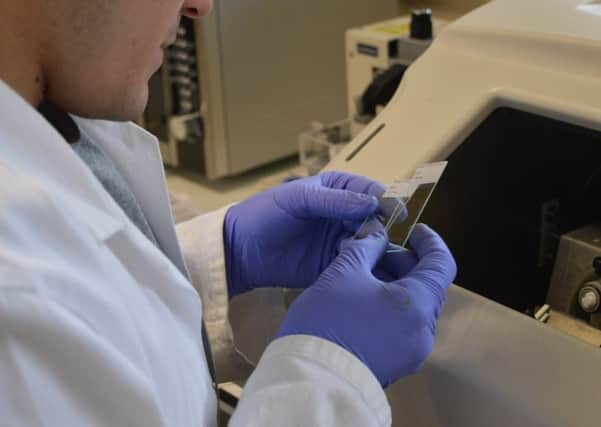Professor Colin Campbell: Bridging the gap between business, academia and the public sector


The UK does have some world-class research institutes, but they are fewer in number than their counterparts elsewhere in Europe and – crucially – have been under greater funding pressures. While economic impacts from policy are often difficult to quantify in monetary terms there is ample evidence from many studies on the direct economic benefits from such research. Independent assessments of research institutes consistently shows they are a source of impressive economic stimulus – far greater than what is typically found for universities and up to four times that of some of the UK’s most prestigious universities.
For every £1 of public funds received, the James Hutton Institute generates almost £13 to the UK economy; that is six times the return of investment of huge infrastructure projects like HS2. It begs the question as to why recent trends in funding have favoured university research. Can it be simply because the latter is allied to education budgets which have been more protected from austerity? Why are institutes having more impact?
Advertisement
Hide AdAdvertisement
Hide AdUnlike universities, research institutes have a greater focus on long-term, mission-orientated projects dedicated to specific sectors (e.g. agriculture, environment). Their approach bridges the gap between basic research and usable, applied outcomes and is often inter-disciplinary across an array of natural and social sciences. Consequently, they make significant, direct contributions to the economy and inform policies in areas like health and wellbeing of people and nature.
The UK Industrial Strategy has a policy commitment to raise research and development investment to 2.4 per cent of GDP by 2027 and acknowledges that the UK “has a range of public research organisations that bridge the gap between business, academia and the public sector, bringing together the best people in their fields to work side-by-side on later-stage research and development”.
Institutes like the Hutton bridge those gaps and connect people, industry and researchers but when funded through government departments most exposed to cuts, budgets have been reduced in both nominal and real terms.
We need to recognise how counterproductive this is, socially and economically, and to recognise that while institutes may be a smaller part of the research ecosystem in the UK, they are hugely important drivers of prosperity and have potential to be even higher-performing engines for growth.
The UK’s knowledge economy drives massive economic and social benefit, and it makes sense to invest rather than squeeze areas where the returns are highest. There are more and more international opportunities for inward investment, and we need our research institutions to be as well-equipped and competitive as possible to ensure that they come to Scotland.
In the last seven years the James Hutton Institute has earned an additional £57million of funding from UK and EU sources. That employs highly skilled workers in Scotland and attracts the best talent from around the world.
If we are indeed to defeat the climate crisis and raise our ambition for science to provide the fuel of knowledge, innovation and expertise for our industries, we need much more investment in research institutes. They add to the diversity of our research capability and what’s more, they are often located in the less metropolitan areas so spreading the economic stimulus they provide.
Institutes like ours, doing research on the climate crisis and finding nature-based solutions for a variety of land-based issues, are stimulating the right type of the green economy. Invest in research. It pays back. The evidence is unequivocal!
Advertisement
Hide AdAdvertisement
Hide AdThe James Hutton Institute is a world-leading scientific organisation encompassing a distinctive range of integrated strengths in land, crop, waters, environmental and socio-economic science. The Institute takes its name from the 18th century Scottish Enlightenment scientist James Hutton, who is widely regarded as the founder of modern geology and who was also an experimental farmer and agronomist. To find out more visit www.hutton.ac.uk
Professor Colin Campbell is chief executive of the James Hutton Institute.